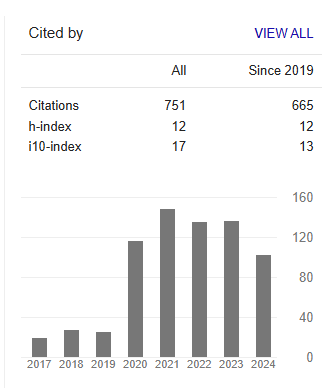Expression of Beclin-1, Bcl-2, Bcl-xL, Bad, and Bax in HCV Patients in Relation to Grade of Hepatic Fibrosis
Abstract
Tarek K. Motawi, Eman A. Amer, Dalia A. Omran and Mustafa A. Elshobaky
Autophagy plays an important role in the pathogenesis of many diseases. However, its role is still unclear. we investigate the mRNA expression of Beclin-1 (major autophagic agent), pro-apoptotic agents (Bad, Bax), and anti-apoptotic agents (Bcl-2, Bcl-xL) in blood samples withdrawn from Genotype 4 HCV-infected patients with different stages of hepatic fibrosis. The study was a retrospective one that included 30 healthy people (Control Group), 64 chronic hepatitis C patients with early hepatic fibrosis stages [grade 0 and 1 fibrosis] (F0-1 Group), and 36 chronic hepatitis C patients with Late hepatic fibrosis stages [grade 2 and 3 fibrosis] (F2-3 Group). qPCR was used to measure mRNA expression in the samples. Beclin-1, Bad, and Bax mRNA expression in F0-1 Group were significantly higher than both F2-3 Group and Control Group (P<0.001). While Bcl-2, and Bcl-xL mRNA expression in F0-1 Group were significantly lower than both F2-3 Group and Control Group (P<0.001). Beclin-1, Bad, and Bax mRNA expression were increased at the early stages of hepatic fibrosis in HCV patients, and were declined as the fibrosis progressed to more advanced stages, while Bcl-2, and Bcl-xL mRNA expression were increased as fibrosis progresses. This shows that Autophagy has an important role in the early stages of hepatic fibrosis in Genotype 4 HCV patients. These findings provide an insight into the pathogenesis of chronic HCV infection, and the effect of autophagy on liver fibrosis. This may be used to provide possible biomarkers and contribute to a new therapeutic approach.



